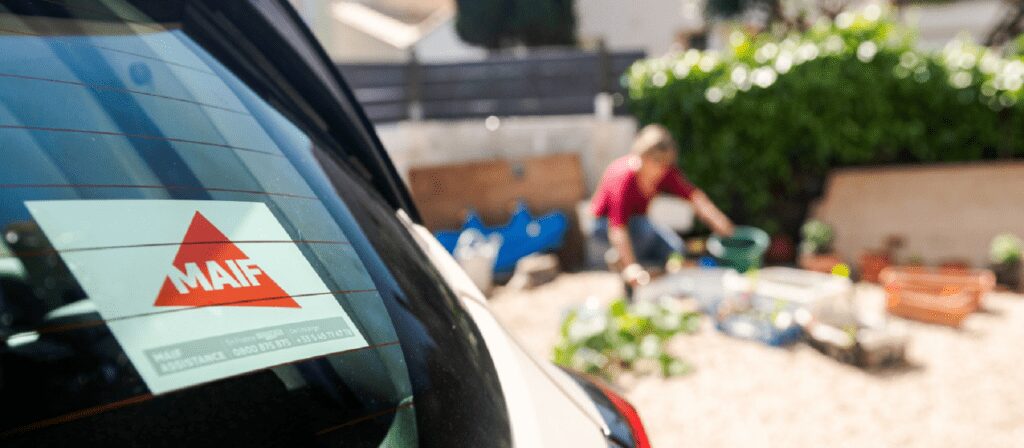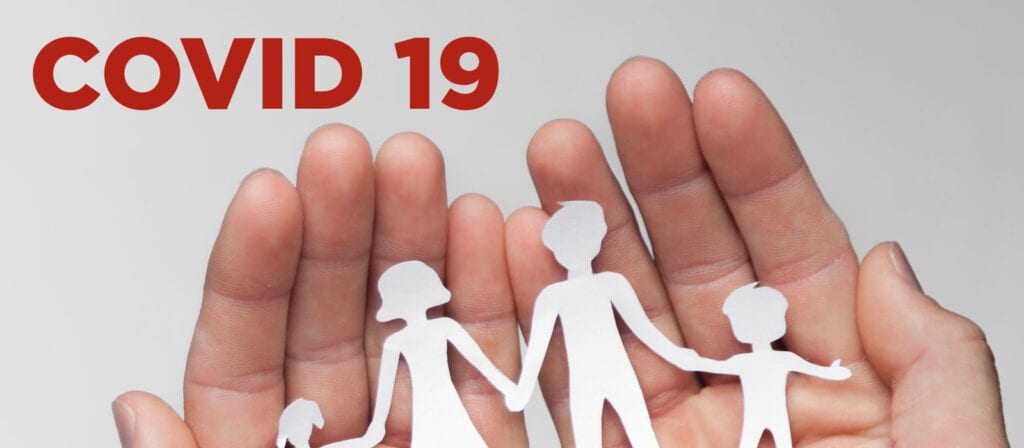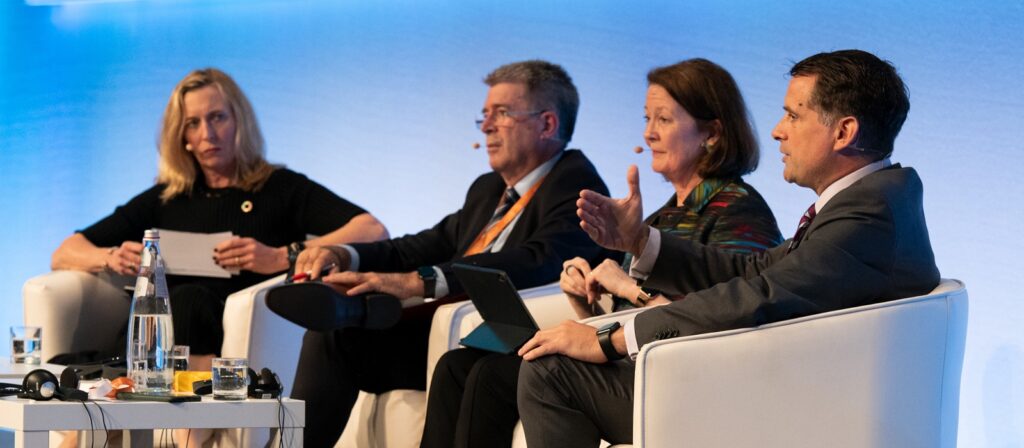Ben Telfer:
Hello, everyone. And welcome to today’s ICMIF webinar: episode five in our The Mutual Advantage series. Today, we’ll hear the case study of MAIF from France on how strengthening MAIF’s commitment to mutual values as a mission orientated company. I’m very pleased to be joined by Guillaume Allenet. Guillaume is a Public Affairs Officer at MAIF. Guillaume, thanks for joining us and I’ll hand over to you.
Guillaume Allenet:
Thank you, Ben. Good afternoon, everyone. Thank you also for the introduction part that I won’t have to do. So I’m here today for this fifth edition of The Mutual Advantage webinar to talk to you about how MAIF, which is the company I work at. I’ve been working there for the past four years now. How MAIF is committed to mutual values and how we do that being what is called a mission driven company or mission oriented company and I’m going to explain to you what it means and how it is illustrated.
But first let me give you just a few key figures about MAIF so that you can actually know what we’re talking about. MAIF was found in 1934 in France. So it’s pretty old now but nowadays we are the sixth largest motor insurer in France and as we insure 3.6 million vehicles and we are the fifth largest home insurer in France with a 3.3 million home and facilities in short. When it comes to associations and public institutions though we actually ranked first on the French market.
We have 3 million members insured which is approximately a total of 7 million people that are insured at MAIF. That’s a total of 3.7 billion euros turnover and 8,000 employees. What’s very specific at MAIF is that within the ranking first, actually in customer relations for the past 17 years and we’re really proud about that. There are actually reasons to that and that’s actually what I’m going to explain to you in this presentation. But just to start let me show you one study that is pretty interesting. I think it is a study that was conducted with two waves, actually the first one was before the French lock down, the first one, it was in March and the second survey was after the lockdown. So basically approximately between June and July.
It’s only based on French respondent and the question was which company inspires you the most when it comes to customer experience and why do you find this company inspiring? The result before the lock down was that 25% of respondents, as you can see on this graph here on the left hand side, 25% of respondents answered that Amazon was the most inspiring brand when it comes to customer experience and very surprisingly MAIF ranked just after with 11% of respondents. Then the lock down came with the COVID pandemic and after the lockdown, the same question was asked and it turns out that MAIF ranked first with 20% respondents saying that it was an inspiring brand and Amazon was only second with a 19% of respondents.
So clearly there’s been a switch in respondent’s inspiration and we’re going to ask ourselves why. We deeply believe that this thing here is not about an economy competition, it’s about a political one. Our CEO Pascal Demurger, has made up this concept of political brand. That political brand is a brand that has a strategy that is focused on positive impact on stakeholders, environment and the whole society. And as we all know, stakeholders are very important parts in a mutual governance and environment.
So what can explain the differences between those two studies? So before lock down and after lockdown. I think that it can be explained by what MAIF has been doing for the past two years and that’s what I’m going to show you now. My presentation today will have three steps. The first steps will explain to you what is so specific about the choices that we have made at MAIF. The second part, we’ll show you how these choices are embodied and the third part we’ll focus on what’s going on today around the world and the COVID-19 pandemic and the responses we had to the pandemic.
So just to quickly before we start, what’s very important to understand is what is so strong in MAIF’s identity. MAIF identity is about the fact that each act counts. We have a strong belief that mutual values are what best serves and aligns the interests of stakeholders. So that is to say employees, suppliers, union, members that is to say customers and also the whole society and the whole environment. We have the strong conviction that companies can actually turn out to be key players in the responses we need to face the challenges ahead of us and we aim, at MAIF, we daily perform towards making the world a better place.
Of course, as a mutual company, our shareholders are our members but it actually goes beyond that. ESG impact, so environmental, social and governance impacts must be at the heart of the strategy of companies and we do that at MAIF. It’s not only a necessity but it is also a source of performance, great source of performance. And that’s the reason why we actually, over the past two years, we have decided to go one step further and following a very important law in France, we’ve become what we called a mission-driven company.
So since 2020, MAIF is a mission driven company and it changes everything. I’ll try to show you how this mission driven governance works and how it helped us develop a trusted and ethical business model that remains faithful to a mutual governance. And in the end, what does it make? It provides the company with a great competitive advantage. So I was talking to you about this law in 2019. It’s a lot that was passed in the parliament, the law on growth and transformation of companies. In this law, you had two different concepts. There were new concepts and it was only based on voluntary companies. So you were not compelled by the law to apply this law. Those two concepts are the raison d’être, which can be translated as purpose or the second one is the mission which actually switched the company into what we call a mission driven company.
So the first month, the purpose consisting principles that you actually put in the bylaws with which the company is endowed and for the respect of which it intends to allocate resources in the performance of its activity. The second thing is the mission, the mission consisting one or several social and environmental objectives that you also put in the bylaws and that your company is committed to pursuing in the course of its business. When you have this mission in your bylaw, you will also need to have what we call the mission committee. That’s the committee that controls the mission. I will show you after how and this committee is made up of the company’s stakeholder. So that’s the law.
What we’ve decided to do after during two general meetings, the first meeting was in 2019. The second one was in 2020. We decided to go a step further to apply the law with on the firsthand, the raison d’être, the purpose and on the other hand the mission. So we at first decided to unveil our raison d’être which is the following and I’m going to read it to you. Convinced that only sincere attention towards the other and the world can generate a better common good, we at MAIF placed this attention at the core of each other commitments and each other we’re actions.
Once we’ve done that, it was the first state step to make us go once that even further to put in our bylaws, the second part of that law, which is the mission. So we became a mission driven company last year in July and now our bylaws states … five commitments both environmental and social commitments. There as well the following. First, is put the interest of our members at the core of our activity. Second, to promote the fulfillment of intern stakeholders, thanks to a sincere attention. Third, contribute to the making of a more solidary society. Fourth, contribute to the environmental transition and last but not least promote the spreading of committed companies with positive impacts.
So now that it’s done, it’s not just words. We have adapted our functioning to make sure that our actions match with this mission. It actually goes into four steps. The first step is about having a chief mission officer. So this chief mission officer has been appointed, he reports directly to the CEO and he has three functions. The first one, he nurtured the actions we implement to help us be more singular in our tasks every day. He also coordinate stakeholders around the mission and he gives a global vision of our actions. And lastly, he gives a view of what our mission can bring to the performance of the company and that’s actually a key thing is, we deeply believe that this ethics, this way to make business is actually as a great source of performance.
The second item is a mission roadmap. We have adopted this mission roadmap and it concerns all services and all divisions within MAIF. It makes all division at MAIF from claims management to even the restaurant, the management of gardens, marketing services, retail agencies or even the digital teams that are now compelled to follow the mission and they all have a roadmap that is actually into each services that follow the general roadmap of the mission. The third item I was talking about it a bit sooner. It’s called the mission committee. So the mission committee is a group of 10 persons, 10 members that chosen among experts from the civil society and a representative from the companies. So they’re basically employees just like me and they’re appointed by the board and they follow the mission. They follow how the mission is performed and they report to the general meeting every year. They assess the progress as we make in regard to the five commitments of the mission.
And the last part is control of the mission. The mission is controlled at least every two years by an independent third party organization. It controls the respect of the mission, how the mission is insured and how it is executed. If the control of this organism comes to the conclusion that the mission is no longer executed or that the company should not be called a mission driven company anymore, judged by order of the CEO of the company, which is the legal representative to withdraw the mission from the bylaws and to also withdraw the name mission-driven company and if you don’t do that, then you can be exposed to fines.
So as you see, it goes very far and it has strong mechanism of compliance but in the end, what difference does it make? Whereas certain company see ESG or ethics as a factor of cost or as something that you put beside your strategy, we see it’s deeply embedded in our action. We see positive impacts as a milestone for our actions. And we also deeply believe that ethics, as I said earlier, is a source of performance and that it gives up us a competitive advantage towards other insurers. So now just to make things more concrete I’m going to try to show you through six different examples, how these choices can be illustrated.
The first example that I’ll have would be what we call the trust based management. Our management is based on the consideration for employees. We have developed this management through trust. We have been favourising horizontality over verticality and we have, for instance put limited wages difference within the company. And in the end, the loyalty of employees that we have is a testimony to their wellbeing within the company and guarantees their commitment to the brand and also to our members and in the end, it just gives a better service for our members. So it’s just only positive aspects. So the more trust you have between employees and also between managers and other employees the more performance the company is.
The second example that I would like to share with you is the inclusion of stakeholders. I’ve talked about stakeholders previously in this presentation. As I said they are key elements for any mutual organization. But at MAIF, we really put them at the center of each of our actions, either there be suppliers or members or employees. For instance, I mentioned previously the mission committee. For instance, in the mission committee, you have employees members of the committee. The board of the company, you also have three members of the board who represent employees. When we design insurance contracts, insurance covers, they are built from the start with the help of our members. We have this consultation processes to listen and get the opinion and the feedbacks from our members. Unions also are very frequently consulted, agreements are signed also very often. For instance, the last agreement we’ve signed was on home office. It was right after the first lockdown and when we all had the impression that home office was going to be the main working habit that we’re going to have, we signed a very strong agreement with unions about home office, for instance.
The other example that we can have is a very simple one but it’s a very strong pledge toward our members. We actually do not give commissions to our cell advisors and in the end it just gives an even better service for our members. That’s also a very strong element of our identity. The fourth example that we’ll have would be about our investments. Like many among us, we have prohibited investments in tobacco, for instance or in armament, in coal or in GMOs. We also systematically of course take into account ESG criteria when it comes to investments but we also decided to go a step further. We have an investment found which is called the MAIF Avenir.
This fund is also a mission-driven company. It has become a mission driven company at the same time, then the whole group. It aims at investing in innovative startups for a total amount of 250 million euros but as we don’t forget our mutual DNA, we also have another investment fund which is called MAIF Social and Solidary Investment. It invest in startup from the social and solidarity economy and it’s totally 100% full part of our DNA as well. So as you see, we also care a lot about impact investment and it’s been very specific in a new fund that we’ve launched two years ago which is called MAIF Transition.
We seek to give our investment the maximum impact in the most concrete way possible in response to the challenges we faced and we have therefore created this investment fund MAIF Transition. It actually intends to meet both transition. So energical, energy transition and agricultural transition, it finances, projects, combining photovoltaic panels installations that are placed above the fields and it allows the fields to have both organic farming and energy transition on the same ground. Our ambition is to gather up for a hundred million euros to finance projects of this site and through this fund, we will contribute in our own scale to the renewable electricity productions, by France and also the European Union and to go one step further in organic farming.
And the last example I wanted to share with you after MAIF Transition was what we call a branch for the recycling of automotive parts. We also here have a very strong involvement. For the damaged vehicles that MAIF has, gets, we have created a partnership with approved recycling professional. We give our members the choice to get their vehicles repaired with pieces from the reuse economy. It has many benefits. First, it has economic benefits in terms of control of the repair costs and it has environmental benefits of course with waste reduction. You also have social benefits because you create jobs, you create skills, you maintain or you developed local workforces but you also have safety outcomes because all the parts that we repair, they are all certified, they are all traceable. So it basically a very virtuous system. Today, 8% of our insured vehicle fleet benefit from this solution and we’re aiming to go even further actually next year, by the end of next year, to reach 10% of our insured vehicle fleets.
So now that I just gave you those example, I’m going to try in the last part to challenge them with the current pandemic that we are going through. The recent COVID crisis of course, has shaken our societies, our economies and our lives, of course and the governance, the systems, the functioning that we have implemented over the past two years actually turned out to be very strong in this crisis to help us be more resilient. So how did we respond to the COVID pandemic taking into account the principles that I’ve just shown you?
There are actually four steps. The first step is general measures that were taken by insurers all over France and by the French Federation. We of course contributed to those measures. It included a national recovery plan of 2 billion euros but we also implemented measures for employees members and the society, the whole society.
First, if you start with measures that we had for employees bearing in mind that our purpose is the sincere attention towards the others. Prior to the first lockdown, in France, we’ve had to lock down so far. Maybe a third one will come soon but we’ll see, that’s kind of a surprise. But prior to the first lock down in March, we had a vast prevention plan that made us able to organize home office very early on, very quickly. We provided all our employees with laptops and it helped us maintain our activity and it helped us also face a second lockdown and in the end, resilience was a top priority for us.
We decided very early the closure of all of our sites, insurance companies were not compelled to in France. They were part of what we call essential services. So you didn’t have to close your sites but because health is a top priority for our employees, we decided to close every size we had. As I said, general home office during the first and the second lock down and it turns out that even between lock downs, we maintain employees in home office, as you can see, I’m working from home right now and we’re not in lockdown but we maintain a very high level of home office as much as possible because once more, the security of people working at MAIF is really the most important element in this strategy.
Last but not least we decided to maintain wages at a level of 100%. Once more, it matches with our DNA and our purpose sincere care towards the other. Whatever the situation of our employees might be, we maintain the wages. So that’s the first the first set of measures that we had. The second set was about our members. And it’s actually the biggest one. Of course, during the lockdown, you had a huge decrease of damages, car damages notably. So we decided to refund 1 million euros to our members. This was an amount that was calculated on the basis of two months of lockdown, so March, April. So we gave the money back to our members. They could decide other, one, to receive cash. I think it was on the basis of 30 euros per vehicle or to donate it to a French hospitals, medical research for the vaccine or to a NGO fighting poverty.
According to ICMIF, we’ve talked about that with ICMIF, that MAIF was actually the first global insurer in the world to announce those premium refunds. So that’s a measure that we’re very proud of and in the end, it just reflects that we could not pretend not to do anything during the first lockdown considering the vast decrease, the significant decrease in terms of vehicle damages. Last September, we also announced that 2021 car terrorists car coverage would be frozen. So it would not cost anything more for our members despite the spare parts cost rise over the past few years.
The last set of measures that we have is about what MAIF can do for the whole society. As I said, as a mission-driven company, we cannot ignore, as a society we cannot ignore the citizens or civil society or just all society. So for instance, we decided to give away the temporary and employments state subsidies for an equivalent of 15 million euros. We also contributed to a solidarity fund and a recovery plan for associations and social enterprises.
We have decided to accelerate and anticipate the payments to our suppliers so that they could avoid economic difficulties as much as possible in terms of delays of payments. For instance, we are very close to the educational environment and so we have made all our scholarship and learning tools and resources available online for free as soon as the first letdown came and last but not least, we have a platform that was called at that time Sharentraide, the name changed as since then. It’s actually an online platform where you can subscribe and it gets you in touch with someone that needs help. So you subscribe to the platform and you say, okay, so I volunteer for giving help to nurses or family that needs help, something like that and the platform gets you in touch with someone who needs help.
For instance, it could be grocery shopping’s for elders or persons working in the hospitals. It’s an open platform. You don’t need to be a member of MAIF to subscribe. Of course it is free. We usually activate this platform for natural catastrophe but we decided to now activated for what we call now, catastrophe. So this gives you a great, also a very recent example where we can apply MAIF philosophy and DNA how this mission-driven company works and how it can illustrate during the COVID pandemic. I hope this presentation was interesting, that you found it interesting. This new year is coming. That’s actually the motto for this year together. Thank you very much for your attention. If you have any questions, I’ll be very happy to answer.
Ben Telfer:
Thank you very much, Guillaume. That was a truly inspirational presentation about your new governance structure and some great examples about how MAIF living your mutual DNA and your commitments to have a positive impact on society. We do have a number of questions. There’s quite a few questions, actually. So we’ve got a bit of time to get through all of them. Anybody listening to this recording as well, please do get in touch because I’m sure we can connect them with MAIF after this webinar.
First question for you Guillaume. When did MAIF start thinking about this journey to change your statutes and was there anything in particular that sort of drove this change?
Guillaume Allenet:
That’s a very good question, actually. So as you know of course as a motor insurer, we’ve always been open to society, civil society and the protection of environment. That’s something that was always in our DNA but a few years ago before actually the law that I was talking about was passed, there were great consultation among the population to see how we can promote the positive impact of companies. Our CEO then wrote a book about this concept that I was talking to you of political company. So saying that now companies, they can’t just ignore what’s happening in the world. They can’t ignore what’s happening in the economy, in the society and they can’t ignore the big stakes of our times, either it be poverty or the rise of temperatures. Companies just can’t ignore those problems and also because they actually are parts of the solution.
So our boss, our CEO wrote this book and then we actually turned the book with the law and now that you can see the whole journey we are now thinking on a European scale, how we can go even one step further, as you might know, and I’m talking mostly for European stakeholders here. There are a numbers of initiatives going on at the European commissions to promote positive impacts of companies. You have the review of the extra financial directive. You also have an initiative on sustainable corporate governance and you also have an initiative on the European single access point for ESG information and data. So in this ecosystem, I’m sure that there is a place for what we call in France, the mission-driven company that can be transferred into the European level. So it gives you actually the journey that started from what’s inside our DNA then to commitments that were written in a book from our CEO then to the law and now thinking to go even further on the European scale.
Ben Telfer:
Are there any other examples of any other mission-driven companies in France and what sectors are they generally in? Are there any other insurers now?
Guillaume Allenet:
I’m not sure you have other insurers now. If you go far the raison d’être, so the first step you have actually numerous examples in France. But for the mission-driven company, you have from all sectors you have for instance companies from the food sector, you have companies from the clothes sector. It’s very trans-sector, it’s not limited plus it’s voluntary, so you don’t have any difficulties to become one. You just need to put the right processes and complaints inside but there hasn’t been yet a sort of a sum up of what companies have done with this law because it’s a pretty recent, not even two years. I’m sure they will be some sort of report to say how the law is applied but yeah, lots of companies have both applied to the raison d’être. I’m not sure on the insurance sector they’re other as far as the mission is concerned.
Ben Telfer:
Any other sort of banking or financial services organizations?
Guillaume Allenet:
I don’t think so. I can look but as far as banking is concerned, no, I don’t think so.
Ben Telfer:
In terms of your customers, how have they reacted to this change? Has it strengthened the relationships between MAIF and it’s customers?
Guillaume Allenet:
Yes, a lot and it turns out that it actually threatens, it made the loyalty of our members even stronger. The key is that actually they recognize themselves in the values that we have. They recognize themselves in the model, the business model that we have. That is a totally different business model, of course, because it’s mutual but also because it’s based on the mission, it’s not about capitalism. It’s about an alternative way and actually that’s very important for our members and they make us know very often that this model is something that make them stay and they don’t switch insurer for instance
Ben Telfer:
A couple of people have commented on the fact that MAIF has out-ranked Amazon and just what an unbelievable statistic to share. A question has just come in: when will you next measure opinion again and what was the reaction of your employees when you shared this news?
Guillaume Allenet:
Actually, I think everyone was a bit surprised. I know that Amazon has a model that’s been criticized, of course, and it’s really far away from what mutual governance is. Of course, I think we have the total opposite. But when it was published, our CEO actually made an article on LinkedIn about it. That was a really, really commented post. So numerous reactions, there were all different sorts of reaction. Some people support it, some people criticize it saying that it was actually nonsense to compare companies like MAIF and Amazon because it was not the same thing at all. Actually as far as I’m concerned, I was very surprised.
Ben Telfer:
And is this survey an annual thing, is this survey going to happen again in 2021…?
Guillaume Allenet:
I can’t tell you that, what I can tell you is that it’s not a survey that was asked by MAIF actually. It’s an independent survey that was conducted by an economic teacher I think. So it has nothing to do with MAIF.
Ben Telfer:
A question that I actually thought of as well has come in. It’s about your no commission to sales advisors. Is this something that’s just new or has it historically been being something that you’ve done?
Guillaume Allenet:
No. It’s been historically and it’s been a strong commitment that we’ve had as well. All our sales advisors, they don’t have any texts to read or any script. So basically when you call MAIF, you talk to someone and it’s very important, you don’t talk to a robot or you don’t talk to someone reading a text. It’s actually in the core of our business, on the phone, people having difficulties, having problems, having damages and you just try to just solve the damages and it can just can’t go with reading a text. So those two things, no script for sales advisors and that no commission is very at the core of our B2C strategy.
Ben Telfer:
And I’m sure it’s great to attract the type of employees or sales agent that is a cultural fit with MAIF and shares the same values as other employees too.
Guillaume Allenet:
Yeah. And very often we have also on social media either in the Twitter or LinkedIn members saying, “I had MAIF on the phone this morning because I had a car accident. Let me tell you I wish I didn’t have this accident of course but I’m so glad the answer I had.” And it’s actually the best thing that you can have as the recognition from your members of course.
Ben Telfer:
Completely. Another question here for you Guillaume, we’ve got time probably for a couple more. Talking about your motor refunds. I know we’ve spoke about this before and ICMIF did some research during the pandemic and we found out that MAIF wasthe first insurance company (or at least the first large insurance company) to offer this premium refunds globally. The question is which proportion of the members took the cash versus the donation?
Guillaume Allenet:
So that’s a question that we get very often. I could not answer right now because we’ve not done connecting the numbers. What I can tell you is two things. First, the parts between people at studying to receive cash versus the persons deciding to giving the cash is approximately equal and in the members who donated the money between the three things that I said. So French hospitals, medical research or poverty it’s once more three equal thirds.
Ben Telfer:
That’s a couple of people ask that a really interesting to know. One more question. In terms of recycling of auto parts, that’s a great example of MAIF being active in the circular economy. Do you have any other examples of where MAIF is active in the circular economy?
Guillaume Allenet:
Well to me, I think there are other examples in the company but to me it’s the most significant one. We are trying to work with legislators on this issue. It’s a very significant one. Car damages is at the heart of what we do. So that’s the biggest example that I have. I’m sure you can find some more but I don’t see any more here. I’m sorry.
Ben Telfer:
And in terms of your investment companies, MAIF Avenir, do they actively look to invest in companies that are active in things like the social economy and circular economy?
Guillaume Allenet:
Yes, of course. Those investments are located in the second firm that I was talking about. So MAIF Social and Solidary Investment. So it’s for both reuse economy and solidary investment. Whereas the first one MAIF Avenir is more startups that are in the digital fields, mobility fields, fintechs, stuff like that.
Ben Telfer:
Do the companies that MAIF invest in, do they have to share the same sort of mission to have a social purpose, even though they’re active in other sectors.
Guillaume Allenet:
They’re not to say mission-driven companies. We do not invest only in mission driven companies of course but yeah, at some point you need to meet expectations and values and we need to meet on the projects we have and the ideas and the values we have, of course. If I can extend the answer I would answer that at the core of our mission is the fact that we want to promote this model of committed companies or mission driven company. Now it’s in our bylaws. MAIF doesn’t insure companies. Historically we’ve done that but since last year we have also modified our bylaws to enable B2B insurance and the thing is that we actually aim to become the insurer of mission driven companies of course, because we share the same values.
Ben Telfer:
Excellent. Thank you very much, Guillaume. I’m going to end that discussion there. We’ve had so many comments come in, just thanking you for an excellent presentation and some of your answers just there and I’m sure there’ll be a number of people wanting to follow up with you. So anybody listening to this now or the recording, please do get in touch. I’m sure Guillaume and his colleagues at MAIF will be happy to speak to you because as I said before, a really inspirational case study. So thank you Guillaume.
Guillaume Allenet:
Thank you very much to ICMIF and the members for their listening.
Ben Telfer:
Thank you. So as I mentioned before, this is episode five in this mutual advantage webinars series. You can watch the recordings of all the previous episodes via the link on screen. The recordings, the presentations, and also a transcription of each webinar is available on our website and you can access this via our new Knowledge Hub.
The above text has been produced by machine transcription from the webinar recording. ICMIF has made every effort to ensure that transcriptions are as accurate as possible, however, in some cases some text may be incomplete or inaccurate due to inaudible passages or transcription errors. Listening to or watching the webinar recording will allow you to hear the full text as delivered during the webinar but this is available in English only. Our transcriptions are provided to enable members to select the language of their choosing using the dropdown menu above.





